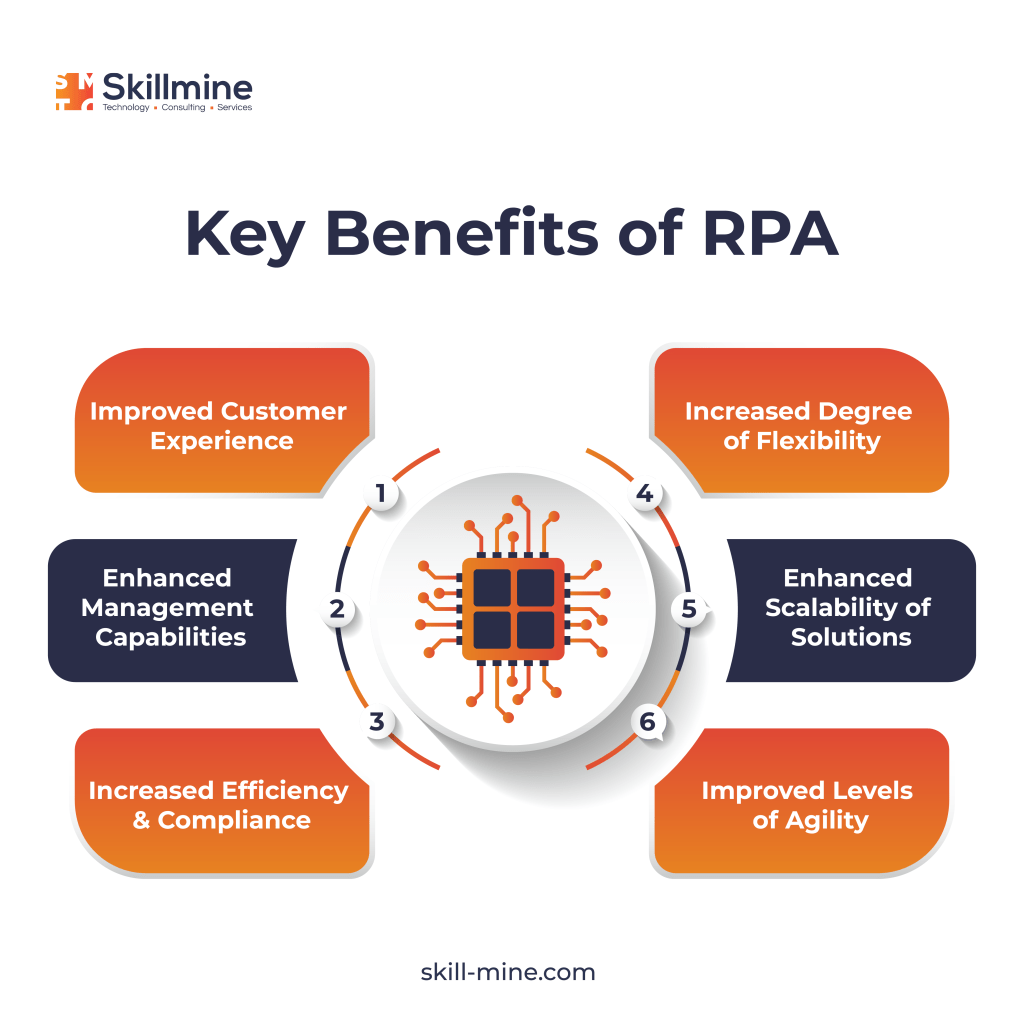Agile business operations have become a key strategy for success, emphasizing flexibility, adaptability, and rapid responses to changing market demands. Robotic Process Automation (RPA) has emerged as a transformative technology that plays a vital role in enabling agile operations. A recent report by Deloitte states that 64% of businesses have implemented RPA in some form, signifying its widespread adoption across various industries.
Robotic Process Automation (RPA) is a technology that automates repetitive and rule-based tasks using software bots. These bots can mimic human actions, such as data entry, file transfers, and report generation while operating with greater speed, accuracy, and scalability. RPA liberates employees from mundane tasks, enabling them to focus on higher-value work that requires creativity and critical thinking.

Let’s explore the significance of RPA in achieving agility.
Enhancing Agility through RPA
According to a Forrester survey, 80% of decision-makers believe that RPA increases the productivity of employees, allowing them to be more agile in responding to customer demands. Agility is the ability of an organization to respond swiftly and effectively to market changes, customer needs, and emerging opportunities. Robotic Process Automation plays a pivotal role in enhancing agility in several ways:
- Increased Efficiency: By automating repetitive tasks, RPA reduces the time and effort required to complete them. This, in turn, accelerates processes, leading to faster response times and improved operational efficiency.
- Flexibility and Scalability: RPA is highly adaptable and can be quickly configured to address changing business requirements. As operational demands fluctuate, RPA bots can be scaled up or down, ensuring a seamless and agile response to market dynamics.
- Data-Driven Decision Making: RPA generates valuable data and insights throughout its automated processes. This data can be harnessed to make informed decisions, further enhancing agility by enabling quick adjustments to strategies and operations.
Improving Customer Experience
In the age of heightened customer expectations, providing a seamless and personalized experience is paramount. A study by PwC revealed that 73% of customers consider a positive customer experience as a crucial factor in influencing their brand loyalty.
RPA plays a significant role in improving customer experience by reducing processing times, minimizing errors, and enhancing data accuracy. With RPA handling routine tasks, employees can devote more time to customer engagement and problem-solving, leading to higher customer satisfaction and loyalty.
Compliance and Risk Management
Agile business operations require a strong focus on compliance and risk management. Robotic Process Automation ensures adherence to regulatory guidelines and reduces the risk of errors associated with manual processes. The Institute of Internal Auditors found that 56% of organizations use RPA ( Importance of RPA ) to enhance compliance and risk management processes. By maintaining data integrity and enforcing standardized procedures, RPA mitigates operational risks and strengthens an organization’s ability to comply with industry regulations.
Conclusion
Robotic Process Automation (RPA) has proven to be a game-changer for businesses aiming to achieve agility in their operations. Recent studies have shown the widespread adoption and success of RPA in improving productivity, customer experience, and compliance across industries. Skillmine’s RPA services stand out as a reliable and innovative solution to unlock an organization’s true potential. With a team of experienced professionals, Skillmine empowers organizations to implement RPA strategies tailored to their specific workflows, ensuring seamless integration and rapid deployment.
Looking for expert technology consulting services? Contact us today.





